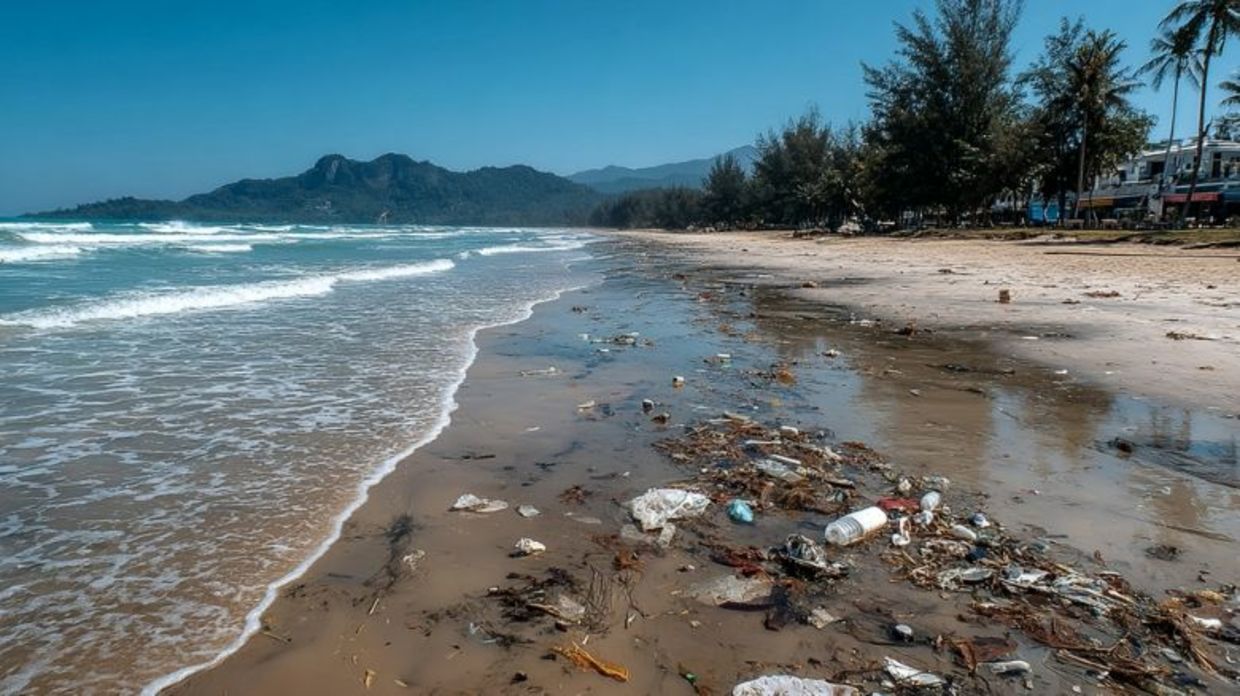
(Antoine Brochard / Shutterstock.com)
New research into the impact of plastic bag bans and charges reveals a significant decline in the increase in coastal litter in the USA, where restrictions on them are in place, reports Mongabay.
The study, entitled “Plastic bag bans and fees reduce harmful bag litter on shorelines,” and conducted by researchers at the University of Delaware, and Columbia University, is optimistic about the impact of plastic ban policies in curbing shoreline plastic bag debris in the USA. This is despite the fact that the total number of plastic bags found across the country is still rising, although at a slower rate in areas that have introduced regulations.
View this post on Instagram
The Impact of Plastic Pollution on Marine Life and Coasts
As the study’s authors detail, plastics have become a worrying source of pollution in our waters, and this is a global problem. Thin plastic shopping bags are one of the most common and worrying types of marine litter. This is because they often evade waste management efforts as they get blown away by the wind.
Marine animals are frequently harmed by becoming entangled in plastic bags, which can also block their digestive systems. Grist reports that as litter, plastic bags kill more sea turtles, whales, dolphins, and porpoises than any other type of plastic.
Additionally, single-use plastic bags are rarely recycled, and quickly degrade into microplastics that are also ingested by wildlife, causing injury, stress and death.
The Study Innovatively Accommodated Varying Data Sources
The study authors stress that while the effectiveness of plastic bag bans and charges which have already been implemented in over 100 countries, hasn't yet been rigorously evaluated, the problem of plastic pollution is pressing enough for around 175 countries to be in talks to create the first global plastics treaty.
To measure the impacts of policies on plastic debris in the environment, the study’s approach involved looking at what the authors call a “patchwork” of hundreds of state and local plastic bag policies adopted across the USA between 2017-2023.
The authors wanted to understand how these regulations influenced the quantity of plastic pollution. They did this by combining their examination of plastic bag policies with “crowdsourced citizen-science data from 45,000 shoreline cleanups, in which participants counted and categorized the items they found.”
This data was sourced by the nonprofit Ocean Conservancy through its Clean Swell app enabling volunteers to count and categorize the trash they collect from beaches and waterways in more than 226,000 locations worldwide.
Significantly, the research design enabled the study authors to control for the share of plastic bag litter in shoreline cleanups before and after each policy’s implementation, as well as plastic bag litter trends from areas that lack a policy.
This approach was not without its challenges. The researchers recognize that weighing up the success of a plastic bag policy depends on multiple factors. For instance, a partial ban could reduce consumption but not litter if the bags most likely to become litter are exempted from the ban.
Kimberly Oremus, study co-author, shares with Popular Science that the varying policies and uneven data on plastic pollution make teasing out trends and patterns harder: “There are many things that can happen to a bag between when you get it at a store and it becomes litter along the shoreline. And with citizen science data, it can be very noisy,” she says.
The Positive Influence of Plastic Bag Controls on Pollution Levels
The study results are encouraging. While plastic bags made up a greater share of cleanup items over the study period, this increase was significantly less in areas with bag control policies, particularly in areas with full rather than partial plastic bag bans.
According to the study “We find that plastic bag policies lead to a 25 to 47 percent decrease in plastic bags as a share of total items collected relative to areas without policies.”
View this post on Instagram
Forbes observes that there is no federal plastic bag policy in the USA, although there are various policies at the town, county and state level.
The report’s co-author, Anna Papp, said that about one-third of Americans are living in an area with a plastic bag policy.
Reporting on the study, the BBC points out that plastic bag bans or fees worked better at state rather than town level, with the biggest impact in places with a bigger litter problem to start with.
Melissa Valliant, communications director with Beyond Plastics, an organization working to end plastic pollution, told Mongabay that “This study is further proof that single-use plastic bans are effective.”
The researchers laud the value of existing plastic bag bans, and of charging consumers for disposable shopping bags in their conclusion: “Our findings demonstrate that plastic bag policies have been widely effective in limiting — but not eliminating — shoreline plastic bag debris in areas where it was previously prevalent. If the sample used in our analysis is representative, then expanding plastic bag bans or fees would continue to decrease plastic bag litter and potentially wildlife entanglement compared with business as usual.”
They also warn that with waste generation only projected to increase, plastic debris entering waters will remain a global challenge unless large-scale policy shifts are implemented. These include a parallel focus on the production side, consumption, and waste.
YOU MIGHT ALSO LIKE:
Meet Clothing You Can Feel Good In!
More of the Globe’s Sea Turtles Are Doing Swimmingly!
Awe-Inspiring Efforts are Cleaning Up the Arctic







